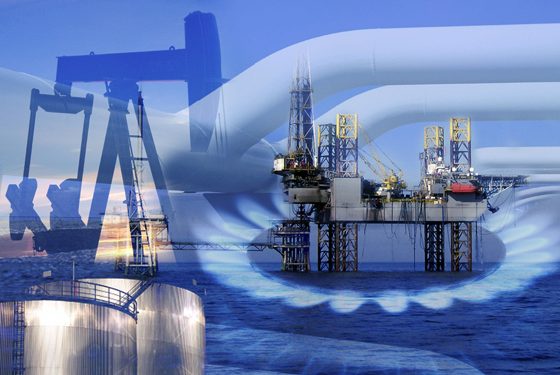With the discovery of oil and gas off its shore, Lebanon has the potential to become like the Gulf – but it will need to do a lot of work to get its infrastructure up to par, industry experts say. “Drilling will need 30 different service companies that would deal with infrastructure, safety and the environment,” Moussa Madi, head of training at Kuwait Oil Company, said at an oil and gas seminar at the American University of Beirut.
The seminar was hosted by Mohammad Ahmad, coordinator and professor of chemical engineering at AUB. Joined by Madi, the AUB professor discussed what the impending extraction of oil and gas would mean for Lebanon.
While they acknowledged that it’s unclear exactly how much oil and gas lies beneath the sea off the coast of Lebanon, although a recent assessment indicates that there may be as much as 25 trillion cubic feet of gas, they are confident that it will have a profound effect on the economy – in a good way, if done correctly.
Madi said that back in 1984 when he was a student in Beirut he did a presentation in which he predicted offshore oil exploration in the eastern Mediterranean. At Tuesday’s seminar, he pointed to a map of Lebanon’s undersea sandstones filled with evident pore spaces that indicate the presence of oil and gas.
“Oil and gas will turn Lebanon into an industrial economy,” Ahmad said. “It will be like the Gulf when we have oil and gas. This will become a reality.”
“If we remove the politics, we could start drilling in three to five years,” Madi said, referring to Lebanon’s divisive political arena and more importantly the state of war between the countries that border the potentially gas-rich basin – Lebanon, Syria, Israel, Turkey, Greece and Cyprus.
Indeed the politics appears to be the main sticking point as there is little doubt that there are sizeable reserves off the coast of Lebanon.
But he also pointed to a lack of readiness in terms of the infrastructure and know-how required to extract oil and gas. As it is, a foreign company will need to do the drilling.
“I don’t know if Lebanon is willing to invest money [in doing its own extraction],” Madi said, noting that even with a foreign company exploring, Lebanon will need a complete revamping of its infrastructure – from its roads to its telecoms and electricity.”
Still, his Beirut-based counterpart remains optimistic that Lebanon will be able to successfully make the transition to an economy with petrol as one of its main engines of growth.
“We should be positive,” said Ahmad, whose final year students are doing a project on creating plastic from natural gas. “We will soon have a degree in petroleum engineering, and Lebanese graduates will be able to work here, and some will come back. I don’t think Lebanon will stay this way forever.”
The Daily Star
25 September






















































